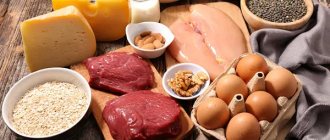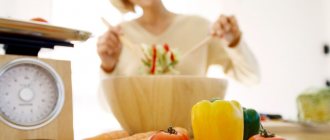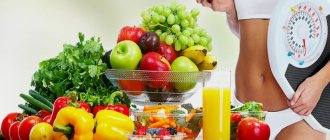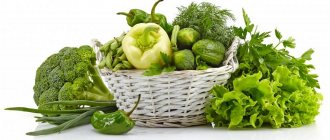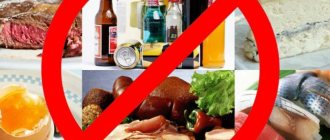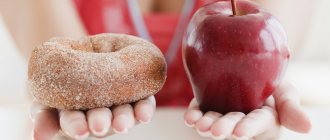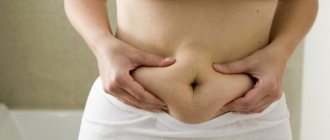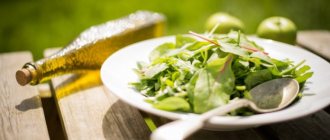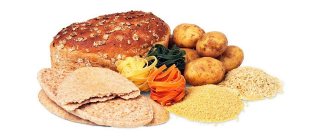The long New Year holidays are ahead, which means abundant feasts that can trigger heartburn. Fortunately, you can get rid of it, or at least suppress the symptoms, without drugs, with the help of products that everyone has at home.
In addition to diseases of the digestive system, heartburn can be caused by alcohol, smoking, fatty foods, chocolate, coffee, fruit juices, hot, sweet, sour, spicy foods, fresh baked goods, carbonated drinks. If an unpleasant burning sensation in the esophagus occurs no more than once or twice a month, there is most likely no reason for concern, but if at least twice a week or once a week, but for a year, then this is a reason to consult a doctor, KP said .RU gastroenterologist Marat Zinnatullin.
According to him, one of the simple and effective ways to get rid of heartburn is to drink alkaline mineral water.
— Among foods, ginger relieves heartburn. In extreme cases, you can use soda, but you should not abuse this method, the gastroenterologist explained.
It is better to make an infusion of ginger without sugar and consume it after meals. As for soda (a pinch dissolved in water), it will extinguish the acidity in the stomach for a short time, while gas will be released, which causes discomfort. Therefore, it should be considered only as an emergency remedy if nothing else is at hand. And the following products can help with heartburn, although not always:
Proper nutrition for heartburn. Useful and dangerous products
Many people face the problem of heartburn. Namely 40% of the population. How to deal with it, what foods cause it, a diet for heartburn and much more you will learn from this article.
What causes heartburn
? Often, the appearance of heartburn is associated with diseases of the gastrointestinal tract or gallstone disease. The occurrence of heartburn is associated with the ingress of gastric juice onto the walls of the esophagus. Gastric juice has an irritating effect, causing a burning sensation and, accordingly, heartburn. Healthy people are also susceptible to such troubles as heartburn. The reason for this is eating junk food (fast food, for example) or taking pills. This kind of heartburn goes away quickly. Also, the risk of heartburn is observed in pregnant girls. With toxicosis and vomiting, the esophagus becomes irritated and heartburn occurs.
What foods cause heartburn
Oranges, lemons, grapefruits (all citrus fruits) and their juices cause heartburn due to the fact that after their consumption the acidity of the gastric juice increases. People who suffer from frequent heartburn should reduce their consumption of these products to a minimum.
Firstly. You need to completely eliminate the foods listed above from your diet.
Secondly. Stop smoking after meals. It can also cause heartburn.
Third. Give preference to steamed and stewed foods. You should completely avoid eating smoked, fried, and pickled vegetables.
Fourthly. Remember that foods that cause heartburn are different for everyone. Therefore, try to remember those foods that cause it in you and temporarily eliminate them from your diet.
We recommend paying attention to diet number 9.
What foods can you eat for heartburn?
You can eat vegetables without fear. The exception is legumes. They can cause gas formation. Potato and carrot juice help improve the functioning of the stomach, and, therefore, reduce the risk of heartburn. Crackers and bread. They do not complicate the work of the stomach, they can be consumed without harm or danger. Fresh apples. These fruits are also not harmful and are allowed for consumption. Olive, butter, sunflower oils. They envelop the walls of the stomach, softening it. Can be consumed both in pure form and added to dishes.
Recommendations for preventing heartburn
Don't eat a lot at one time. Break your meals not into 2-3 approaches, but into 4-5. It's better to eat more often, but less. This will prevent the stomach from stretching.
Eating should be immediately a few hours before bedtime. Dinner should be low-fat.
Don't wear tight clothing. Do not tighten the belt too tight around your waist. This causes acid to move back into the esophagus and cause heartburn.
By following these simple tips and tricks, you can get rid of heartburn. It was noticed that after 3-4 days of dieting and following the recommendations, the burning sensation disappears and does not appear until the return of poor nutrition. Do not forget that heartburn is the first sign of many dangerous diseases. Therefore, if you suddenly experience heartburn, go to the doctor without hesitation. He will make an accurate diagnosis and help in treatment with medications such as prokinetics.
Reviews and results
With heartburn, patients quickly identify the foods or dishes that cause it. Sometimes their exclusion saves patients forever from this unpleasant phenomenon. In more severe cases, when there are symptoms of esophagitis, the diet must be followed constantly and proper nutrition should become the norm of life. It turns out that it is not so difficult to exclude spices, fried foods and cook everything by steaming or in a slow cooker. By reviewing your diet, you can eliminate heartburn, belching and discomfort in the esophagus and stomach.
- “... I have been suffering from this for a long time, but periodically. I know exactly what foods I can’t eat, but sometimes I allow myself to eat them and then regret them. I think that this is not the norm and should not be like this, so I did a gastroscopy. They said that there is already inflammation of the esophagus and that I need to undergo a course of treatment and follow a diet until it goes away. I followed the diet for 2 months, felt good and thought that I had gotten rid of this unpleasant symptom forever. But when I started eating a little citrus fruits and pickled vegetables, everything came back, although not as pronounced. I came to the conclusion that I need to monitor my diet constantly, although it is very difficult to cook for myself separately, because the family will not eat unroasted soups all the time. With this diet I lost 5 kg”;
- “... Heartburn bothered me periodically, but for a long time. I didn’t attach any importance to this - I bought medicine at the pharmacy and didn’t follow a diet. But when pain appeared in the esophagus when food passed, I thought about it and decided to get examined - erosion was discovered. She was treated in gastroenterology, ate properly by the hour. I don’t think I could organize this for myself at home. The erosions healed after 15 days, I was discharged, but with the condition of continuing restorative treatment for 6 months and following a diet. I followed it for 3.5 months - I tried to chop it up, and then ate lumpy boiled meat, chicken and fish. I ate mostly soups and porridges (sometimes with milk). Of course, if you are on a diet, then nothing worries you. I noticed that my stomach didn’t hurt and my gallstones didn’t bother me. I feel good, I want to follow a diet constantly”;
- “... Heartburn tormented me - it happens after sweet and sour, spicy and fried foods. I noticed that over the years there are more and more foods and dishes that are poorly tolerated and need to be excluded. This finally forced me to be examined and thoroughly treated. She was treated at home and organized dietary meals. It was easy to do this, since I have a double boiler and a multicooker in my arsenal - you just need not to be lazy. Relief came after 7 days - lightness in the stomach, absence of belching and burning sensations in the throat. I noticed that I shouldn’t overeat, so I take several dishes to work (porridge, cottage cheese, steamed cutlets) and eat every 3 hours, then there is no sucking pain in the stomach, which happens with high acidity.”
General rules
Heartburn (a burning sensation behind the sternum and in the throat) is the most common symptom of various gastrointestinal diseases. As a rule, it is a consequence of the reflux of gastric contents into the esophagus ( gastroesophageal reflux ) and is considered a characteristic symptom of gastroesophageal reflux disease. Heartburn can also be a symptom of esophageal lesions (primary or secondary). Among the primary ones achalasia of the cardia , and from the secondary ones - lesions against the background of scleroderma , myxedema , systemic lupus erythematosus , rheumatoid arthritis , diabetes mellitus , amyloidosis , chronic alcoholism .
Causes and consequences of heartburn
The causes of this symptom may be functional conditions or, as mentioned above, diseases:
- Constant overeating - an increase in the volume of the stomach leads to relaxation of the lower esophageal sphincter, which creates favorable conditions for the appearance of pathological reflux.
- Physical activity immediately after eating.
- Changes in mental status (tension, anxiety, depression ).
- Gastrointestinal pathology – gastritis , duodenitis , biliary tract diseases, irritable bowel syndrome.
- Increased intra-abdominal pressure, for example due to obesity or pregnancy . An increase in abdominal circumference leads to an increase in intra-abdominal pressure and dysfunction of the esophageal opening of the diaphragm. Constipation is also a cause of increased blood pressure .
- Hiatal hernia.
- Failure of the obturator mechanism of the cardia.
- Gastric stasis.
The consequences of reflux of stomach contents and heartburn are the risks of developing the following complications from the esophagus:
- Esophagitis (catarrhal and erosive).
- Ulcers and bleeding.
- Barrett's esophagus (a serious complication manifested by the replacement of the squamous epithelium of the esophagus with a cylindrical one, which is regarded as a precancerous condition. Severe epithelial dysplasia is equivalent to cancer).
- Strictures (narrowing).
- Cancer.
Causes of heartburn on an empty stomach
Immediately after waking up, the digestive organs begin physiological activity and prepare the internal organs for food intake: the secretion of digestive juice in the stomach, the production of bile in the liver and the production of saliva by the salivary glands increase.
Hydrochloric acid and bile are active substances and in the absence of food, which reduces their aggressiveness and concentration, they irritate the mucous membrane of the stomach and duodenum. When there is an excess of gastric juice, the sphincter relaxes, which prevents the contents from the stomach from entering the esophagus. During this period, hydrochloric acid can be thrown into the esophagus, causing an unpleasant burning sensation.
In pregnant women, this condition is associated with an enlarged uterus, increased intra-abdominal pressure and compression of the stomach. The situation is aggravated by the action of progesterone , which relaxes the sphincter muscles. Thus, all the prerequisites for the occurrence of heartburn are created. In this regard, skipping food is not acceptable - the morning should begin with a high-calorie breakfast, preferably at the same time, which will reduce the aggressiveness of hydrochloric acid.
It is also known that eating fatty and fried foods in the evening, smoked foods, spicy foods and sauces, drinking alcohol and wine, as well as eating a large meal at dinner cause a several-fold increase in the amount of hydrochloric acid in the gastric juice. This leads to unpleasant sensations immediately after waking up, which can be avoided by proper nutrition during the day and especially in the evening.
Heartburn often occurs from hunger - when dieting and skipping meals. And this is due to the fact that the stomach, which processes portions of food at a certain time, continues to secrete digestive enzymes during the fasting period.
Patients often underestimate the significance of heartburn; they often ignore it or, if it is severe, treat it themselves. However, this is not always justified. Treatment of patients is carried out differentiated.
Patients with episodic heartburn (less than once a week) are prescribed antireflux therapy (for example, alginic acid based on brown algae - Gaviscon and Gaviscon Forte ). The advantages of this suspension are visible: it adsorbs pepsin and bile acids, stimulates the secretion of bicarbonate, and the gel protects the mucous membrane of the stomach and esophagus.
Alginates are not absorbed, therefore they do not have a systemic effect, do not accumulate, and act quickly and for a long time. The drug, taken 30 minutes after a meal, creates a barrier that prevents acid from entering the esophagus. Even if reflux , a suspension rather than acidic contents enters the esophagus. Hydrochloric acid remains in the stomach and performs its digestive function. The drug is approved for over-the-counter release.
For patients over 50-55 years of age who experience frequent episodes of heartburn, endoscopic examination is indicated. If erosions in the esophagus are detected, proton pump inhibitors are prescribed ( Omeprazole , Lansoprazole , Rabeprazole , Esomeprazole ), which are taken 30 minutes before meals, in combination with alginates. In the absence of erosions, monotherapy with alginates is often used. Of course, the questions of treatment and its duration in all these cases are decided by the doctor. It is important to follow a certain diet during treatment.
Diet and proper nutrition for heartburn are aimed at reducing its frequency and creating conditions to reduce inflammation of the mucous membrane of the stomach and esophagus. In addition to stopping attacks, which improves the patient’s well-being and quality of life, the diet helps prevent complications, in particular reflux esophagitis . It provides:
- Reducing the volume of food - small and frequent (up to 5 times a day) meals; overeating is not allowed, especially at night.
- Following a diet means eating regularly, preferably at the same time.
- Exclusion from the diet of fatty, fried, smoked, sour and sweet foods, which contribute to heartburn.
- It is prohibited to consume alcohol, strong coffee, tea and large amounts of liquid, which increase the reflux of stomach contents.
- Exclusion of spicy and hot dishes.
- For heartburn and belching, it is also recommended to exclude foods that cause flatulence (all drinks with gas, yeast baked goods, fresh bread, legumes, grapes, raisins). These two symptoms are related and excess flatulence can intensify them.
Following simple recommendations will also help avoid heartburn and regurgitation (stomach contents entering the oral cavity):
- The patient should not lie down immediately after eating.
- You need to lose weight if you are overweight.
- Avoid working in a forward position, lifting heavy objects, wearing tight clothes and tight belts - all of these conditions increase intra-abdominal pressure and provoke heartburn.
- Dinner 4 hours before bedtime (it should be light and not too much).
- Use a high pillow while sleeping (raising your head 15-20 cm significantly reduces regurgitation of stomach contents).
- Avoid constipation and flatulence.
- Avoid smoking and drinking alcohol.
- Take alkaline mineral waters as recommended by your doctor.
If there are no concomitant gastrointestinal diseases, then these general principles of nutrition and behavior will help get rid of heartburn and prevent its occurrence in the future. If you have gastritis or esophagitis (especially erosive), nutrition should be taken more seriously, and it will depend on the severity of symptoms and the stage of the disease.
Thus, during the period of exacerbation, the most gentle diet within the limits of Table No. 1A . Bread and baked goods, broths, all vegetables and fruits in any form, carbonated drinks, coffee, strong tea, cocoa, any sauces and spices are excluded for 7-10 days. The basis of the diet is slimy or pureed soups, liquid pureed porridge with water or milk, thoroughly pureed meat and fish dishes in the form of soufflé and liquid pate. All this is necessary to spare the mucous membrane and speed up its recovery processes.
Proper nutrition for this table includes:
- Meat dishes in the form of a steam soufflé - boiled meat is thoroughly beaten in a blender, beaten egg whites are added and steamed.
- Fish dishes (using lean fish) are also prepared in the form of a soufflé.
- To prepare slimy soups, use baby food flour (oatmeal, rice, buckwheat) or the same cereals, but well boiled. You can add an egg-milk mixture to soups.
- Dishes from pureed cereals are prepared in the form of liquid porridge with water or milk.
- Low-fat milk, calcined cottage cheese and low-fat cream as an additive to dishes.
- Soft-boiled eggs, egg porridge or omelet.
- Kissels and jelly made from berries, excluding fresh berries.
- Weak tea with cream, a decoction of wheat bran.
- With catarrhal esophagitis, there is no need for such a strict diet and the patient can be prescribed Table No. 1B or immediately No. 1 .
Table No. 1B includes:
- Puréed soups already have the addition of pureed vegetables.
- Meat, chicken and fish dishes are already prepared in the form of quenelles, mashed potatoes and cutlets.
- Canned vegetables and fruits (baby food series).
- A limited amount of vegetables (potatoes, carrots, beets and zucchini) can be pureed. There remains a strict ban on raw fruits and vegetables.
- The number of eggs increases (you can eat up to 3 eggs a day - soft-boiled or scrambled eggs).
- Milk up to 4 times a day, fresh cottage cheese is allowed (milk is added to it and pureed), cream is added to dishes, and milk jelly is served as a separate dish for second breakfast or afternoon snack.
- Table No. 1 is complete and at the same time moderately gentle. It contains a reduced amount of animal fats, which reduce sphincter tone and cause heartburn (heavy cream, butter, fatty pork, goose, duck, fatty fish, fatty lamb, pastry creams).
- Irritating foods are also excluded, which include citrus fruits, strong coffee, tea, chocolate, tomatoes, onions, garlic, spices, mint, alcohol - they also reduce sphincter tone.
- The amount of protein increases to 100 g per day, since the protein component of food helps to increase sphincter tone.
- Fractional meals are still recommended, it is also necessary to monitor the calorie content of food - a larger percentage of it should be in the first half of the day, and dinner should consist of easily digestible dishes (porridge, omelettes, cottage cheese, vegetable purees).
- Exclude secretion agents and coarse foods with connective tissue, vegetables with coarse fiber and essential oils (turnips, radishes, onions, garlic, asparagus, legumes), fruits with coarse skin (gooseberries, grapes, dates, currants), bread with bran.
- Food is steamed and, depending on the state of health, can be pureed or finely chopped. It is possible to bake in foil or a sleeve so that a crust does not form.
